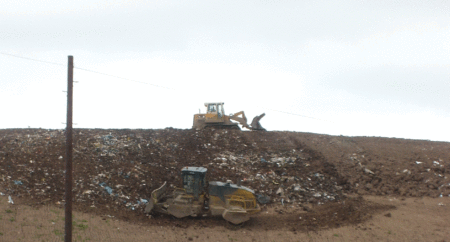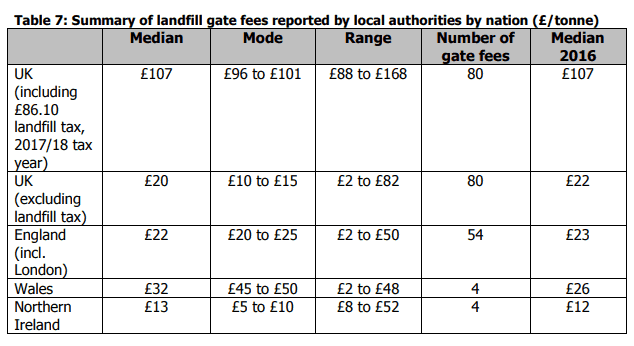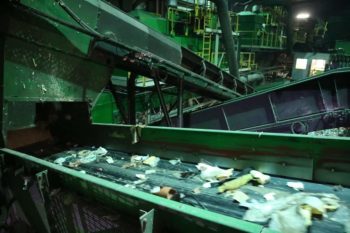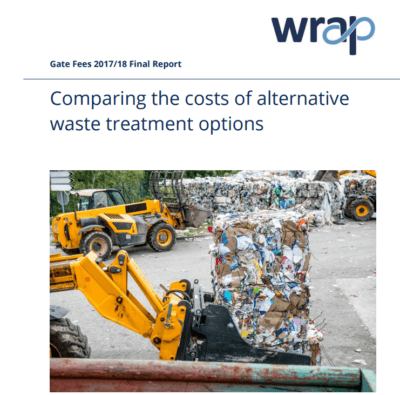That was the verdict from resources charity WRAP, which released its annual gate fee report last week for 2017, which covers gate fees charged to local authorities in the UK for municipal waste recycling, recovery, treatment, and disposal options.

The report found that after an increase in 2016 to an average of £22 a tonne, UK gate fees for non-hazardous waste at landfill sites actually fell from last year’s 2016 report, averaging out at around £20 a tonne.
£82 landfill high
However, the report had a large range, with costs ranging from £2 a tonne to a high of £82 for non-hazardous waste from a total of 80 responses.
The mode for non-hazardous waste, which is the most common number in a pattern, stood at between £20 to £25 while the median, the middle number, stood at £20 a tonne.
“Landfill gate fees vary regionally, depending upon the availability of capacity locally and of alternative options such as EfW or ports for RDF export,” the report read.
Including tax, the range was £88- £168.
Gate fees are highest in Wales (which has increased from £26 to £32/tonne since 2016) and lowest in Northern Ireland at £13/tonne.
As outlined below, in England, there are many regional differences, according to WRAP, with the lowest gate fees seen in Yorkshire and the East of England, both at £13/tonne.

MRF
One of the major findings from the report was the range that local authorities reported for material recovery facilities (MRFs).

The median gate fee paid by local authorities for MRF services increased from £15 per tonne in last year’s report to £22 per tonne for the calendar year of 2017.
Although most gate fees reported ranged from £0 to £5 (the mode), the actual range of gate fees at MRFs is much wider than other technologies, according to the report.
Some local authorities report receiving as much as £37 per tonne in income for their materials, whilst others report paying up to £95 per tonne to their MRF.
This year, 16% of local authority respondents report not paying a gate fee for MRF services in comparison to 21% in 2016 and 28% in 2015.
For contracts signed in 2017, the median gate fee is £35/tonne, compared to £29/tonne in 2016.
WRAP received a total of 94 responses from across the UK, and said there was a difference between England, Wales and Northern Ireland.
The report said: “Analysing median gate fee and gate fee range per UK nation (plus London) shows Wales and Northern Ireland experiencing higher median gate fees and minimum gate fees than England, potentially due to relative market size. This corroborates trends seen in previous years.”
Anaerobic Digestion (AD)
On the organics front, the report explained that IVC gate fees for local authorities fell again, continuing a trend of “steady decline” the last four years.

According to WRAP the range has widened with the lowest gate fees dropping below £0/tonne.
The median gate fee paid by local authorities in London has remained the same as 2016 at £26/tonne, although operator interviews suggest this does not reflect significantly lower current market prices. However, the majority of these contracts were signed in 2014 when market prices were higher and two authorities’ contracts are up for renewal in 2018.
The median gate fee in Wales remains fairly similar to 2016 at £49/tonne (£50/tonne in 2016) and the range also has remained virtually the same (£14 to £62/tonne compared to £14 to £65/tonne).
“This is perhaps reflective of that fact that a high proportion of the contracts in Wales are long-term PFI contracts which is helping to maintain the prices in Wales,” the report said.








Subscribe for free